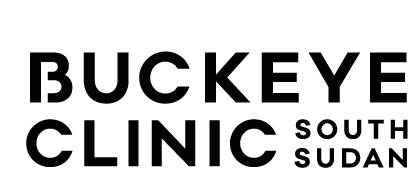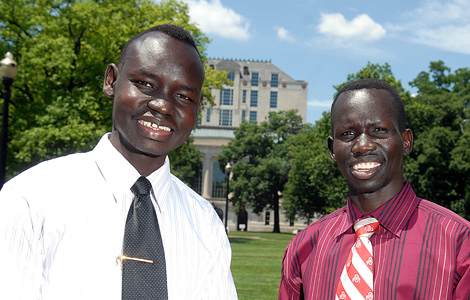Bol’s and Jok’s Story
As six year old boys, Jok Dau and Bol Aweng, two Lost Boys of Sudan, fled their village in 1987 when it was attacked, bombed and burned by government troops. While walking 1,500 miles to Ethiopia and then to Kenya, they survived attacks by government troops, starvation, illness and attacks by wild animals. Of the 35,000 Lost Boys that fled Southern Sudan, they were among the 16,000 who safely arrived in Kenya. They spent fourteen years in refugee camps until they were approved for resettlement in the United States by the United Nations High Commissioner for Refugees. They arrived in Nashville, Tennessee in 2001, worked at low wage jobs while earning Associate Degrees in Computer technology. They moved to Columbus, Ohio to attend The Ohio State University. They became US citizens in 2007 and graduated from OSU with degrees in Political Science and Fine Arts.
Bol and Jok returned to their Southern Sudanese village of Piol in December 2007. It was a bittersweet reunion with families they had not seen in twenty years. Seeing their mothers, meeting new siblings and being with aging grandparents was exceptionally gratifying. However they also learned details of family members who had not survived the destruction of their village. The living conditions in the village deeply concerned them. There were no buildings left after the bombing, only family tukals (huts) had been re-built. Families had very little food and there were no schools. Very few in the village could read or write, and only one person in the village had a job. The only health care was provided by a young man who had a second grade education in English. He had a chair and a card table and a small box of malaria medications, aspirin and cough syrup provided by UNICEF. What they observed deeply concerned them.
Upon returning to Columbus, Bol and Jok felt a responsibility to use their skills and experience to make a difference in their community. After assessing all the needs, they determined that the most critical was health care. They want to provide additional heath services in their village. With the support of friends they had met in Columbus, they formed a steering committee of people committed to helping this dream become a reality.



